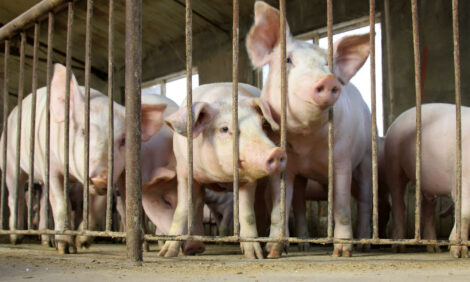



Processing costs should be considered when using alternative feed ingredients
A swine nutritionist with the University of Saskatchewan says, when considering the inclusion of alternative feed ingredients into swine rations, pork producers need to factor in costs other than the price of the ingredients.In order to lower production costs pork producers have been expanding their use of the byproducts produced through the processing of various grains and oilseeds.
Speaking to Farmscape, Dr Denise Beaulieu, assistant professor in monogastric nutrition with the University of Saskatchewan's College of Agriculture and Bioresources, says producers can usually get these ingredients at a much lower cost than the primary ingredients but there are added factors to consider.
"Even though alternative feed ingredients can be a lot cheaper, producers need to look at the feed per gain and look at the overall bottom lines because there could be other costs to using them," explains Dr Beaulieu. "For example, they might require additional feed processing so they would have to consider maybe the cost of grinding or further processing of these ingredients in their overall cost.
"They might want to consider variability. Feed ingredients tend to be a little bit variable in terms of quality and nutrient content. This is because they are obtained from different industries.
"If there's a variability in nutrient content of these ingredients they would have to have further analysis done and this brings in a cost. So they certainly have to consider other factors rather than just the cost of the ingredients themselves when they're using these ingredients in the rations.
"As we do more work with these alternative ingredients and we learn more about them, we are finding that they have uses beyond what we originally thought they could be used for and we are able incorporate them at higher and higher amounts in our rations and still maintain growth of the pig, and we're not sacrificing meat quality at all.
"I would predict that, in the future, we'll be using more variety of these ingredients and at increasing amounts in our rations."
Dr Beaulieu says, given what has been learned, we can reduce costs while maintaining performance.







